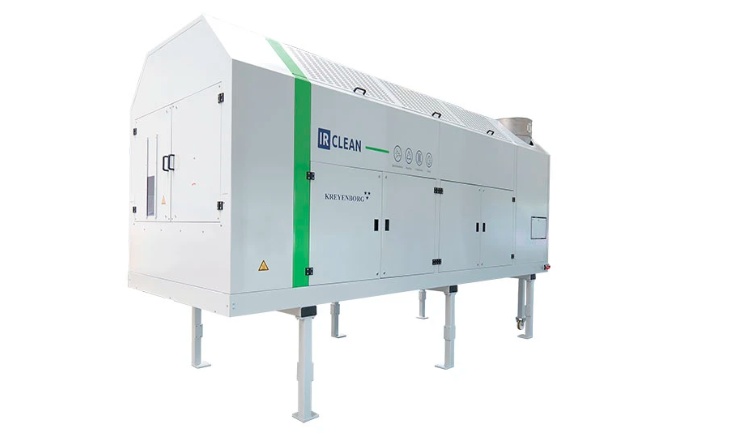EFSA Approves Kreyenborg Infrared Technology for Food Packaging Recycling Materials
The European Food Safety Authority (EFSA) has issued a positive scientific opinion on the infrared technology IR-Clean developed by the German company Kreyenborg, in accordance with EU Regulation 2022/1616. This technology can decontaminate recycled polyethylene terephthalate (PET) flakes, making them suitable for use in the production of food packaging.
Kreyenborg stated that with EFSA’s approval of its process, its IR-Clean system will be assigned a unique Recycling Authorization Number (RAN) and included in the public register.
According to Kreyenborg, multiple IR-Clean processes have received positive feedback from customers under the old EC 282/2008 regulation. The company also added that under the new EU 2022/1616 regulation, the approval procedures for Kreyenborg and its packaging industry customers will be streamlined and simplified.
After evaluating the challenge test data, the EFSA Panel concluded that there are no safety concerns regarding the recycled PET obtained through the IR-Clean process. Therefore, it can be reused at up to 100% for the manufacture of materials and articles intended to come into direct contact with all types of food, stored at room temperature or below. However, the input material must consist of post-consumer PET flakes originating from packaging that complies with EU legislation on food contact materials, which have been washed and dried, and the proportion of PET from non-food consumer applications must not exceed 5%, provided that the process is operated under the same stringent conditions as the decontamination process evaluated by EFSA in the “challenge test.”

In the process evaluated by EFSA for the Kreyenborg company, two main steps were assessed: the decontamination of PET flakes in the infrared dryer (IRD), and the subsequent treatment in the finishing unit.
Marcus Vogt, Technical Sales Manager of the Plastics Division, stated: "These two steps are crucial to the decontamination efficiency of our plant." He summarized the long and complex measurement work carried out as part of various challenge tests prior to the EFSA evaluation. Vogt helped initiate the application and accompanied the process throughout the more than six-year approval procedure, which not only had to comply with EU standards but also required various approvals in accordance with the regulations of the U.S. Food and Drug Administration (FDA).
【Copyright and Disclaimer】The above information is collected and organized by PlastMatch. The copyright belongs to the original author. This article is reprinted for the purpose of providing more information, and it does not imply that PlastMatch endorses the views expressed in the article or guarantees its accuracy. If there are any errors in the source attribution or if your legitimate rights have been infringed, please contact us, and we will promptly correct or remove the content. If other media, websites, or individuals use the aforementioned content, they must clearly indicate the original source and origin of the work and assume legal responsibility on their own.
Most Popular
-

Key Players: The 10 Most Critical Publicly Listed Companies in Solid-State Battery Raw Materials
-

Vioneo Abandons €1.5 Billion Antwerp Project, First Commercial Green Polyolefin Plant Relocates to China
-

EU Changes ELV Regulation Again: Recycled Plastic Content Dispute and Exclusion of Bio-Based Plastics
-

Clariant's CATOFIN™ Catalyst and CLARITY™ Platform Drive Dual-Engine Performance
-

List Released! Mexico Announces 50% Tariff On 1,371 China Product Categories






